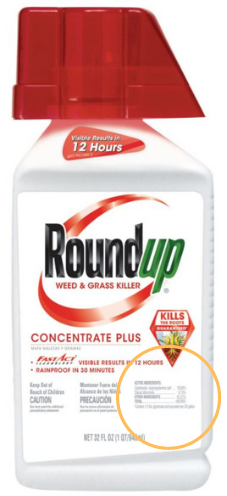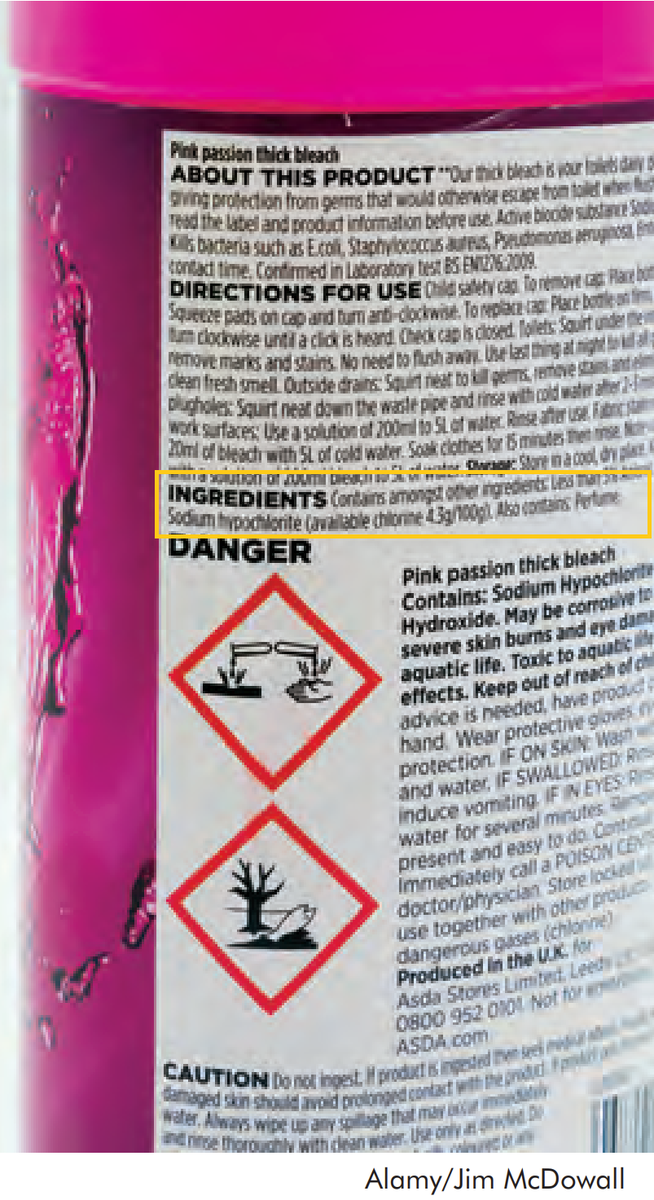Gateway on Pesticide Hazards and Safe Pest Management
How To Find Ingredients in Pesticide Products
Beyond Pesticides offers resources below to evaluate the health and ecological effects of specific chemical exposure from ACTIVE INGREDIENTS in pesticide products, as well as regulatory information and supporting scientific documents. Because various pesticide products can contain more than one active ingredient, it is important to READ the LABEL to determine chemical components.
With 192 different active ingredients and counting, it is essential to establish the connection between the use of these chemicals and their respective hazards.
View the step-by-step guide on how to search for the active ingredient(s) in pesticide products below:
- Go to U.S. EPA's Pesticide Product and Label System and enter the product name. The generic product name may vary.
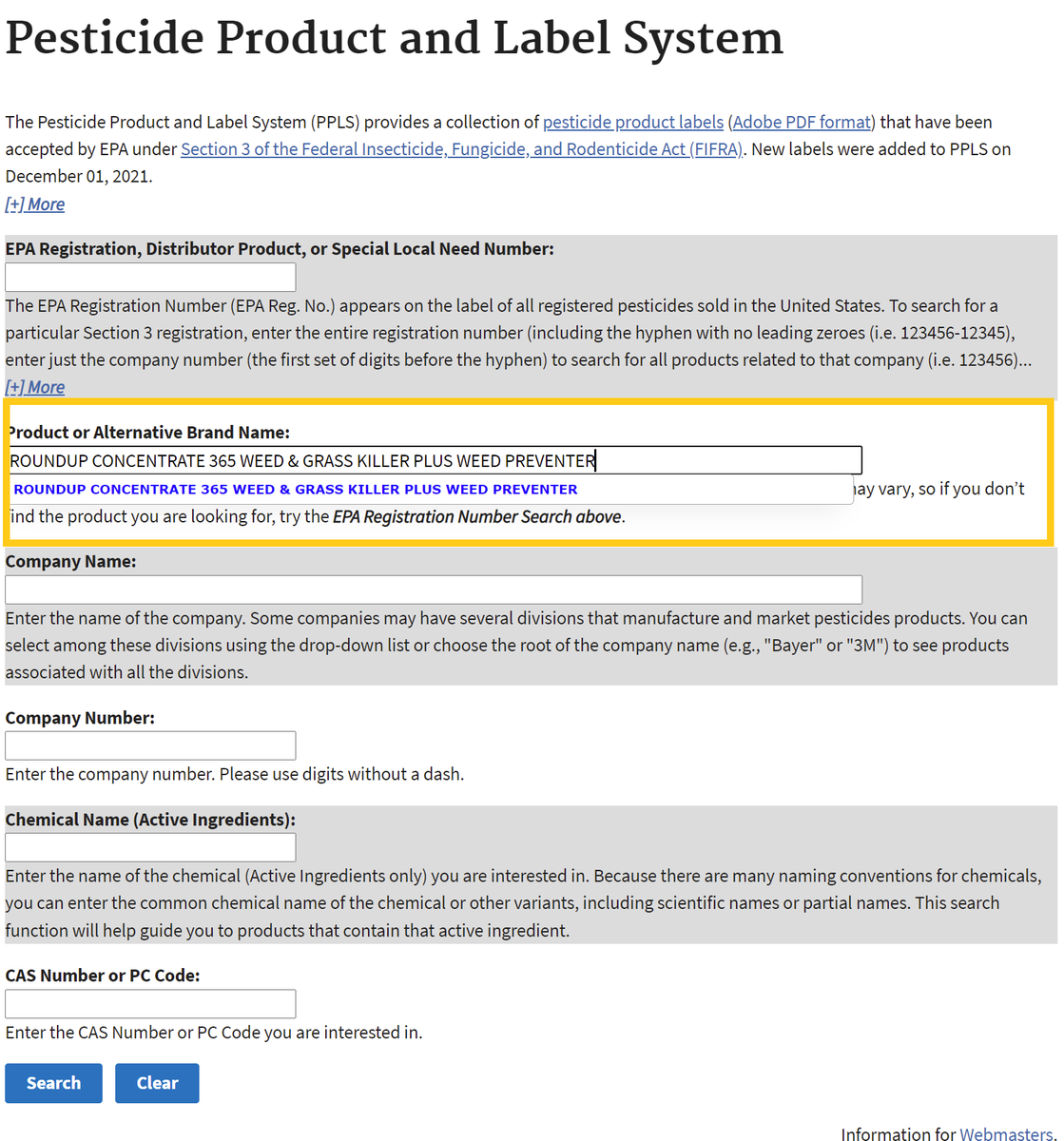
- After searching, click on the chemical ingredients tab or the link for the most recent label to find Active Ingredients.
Chemical List Label List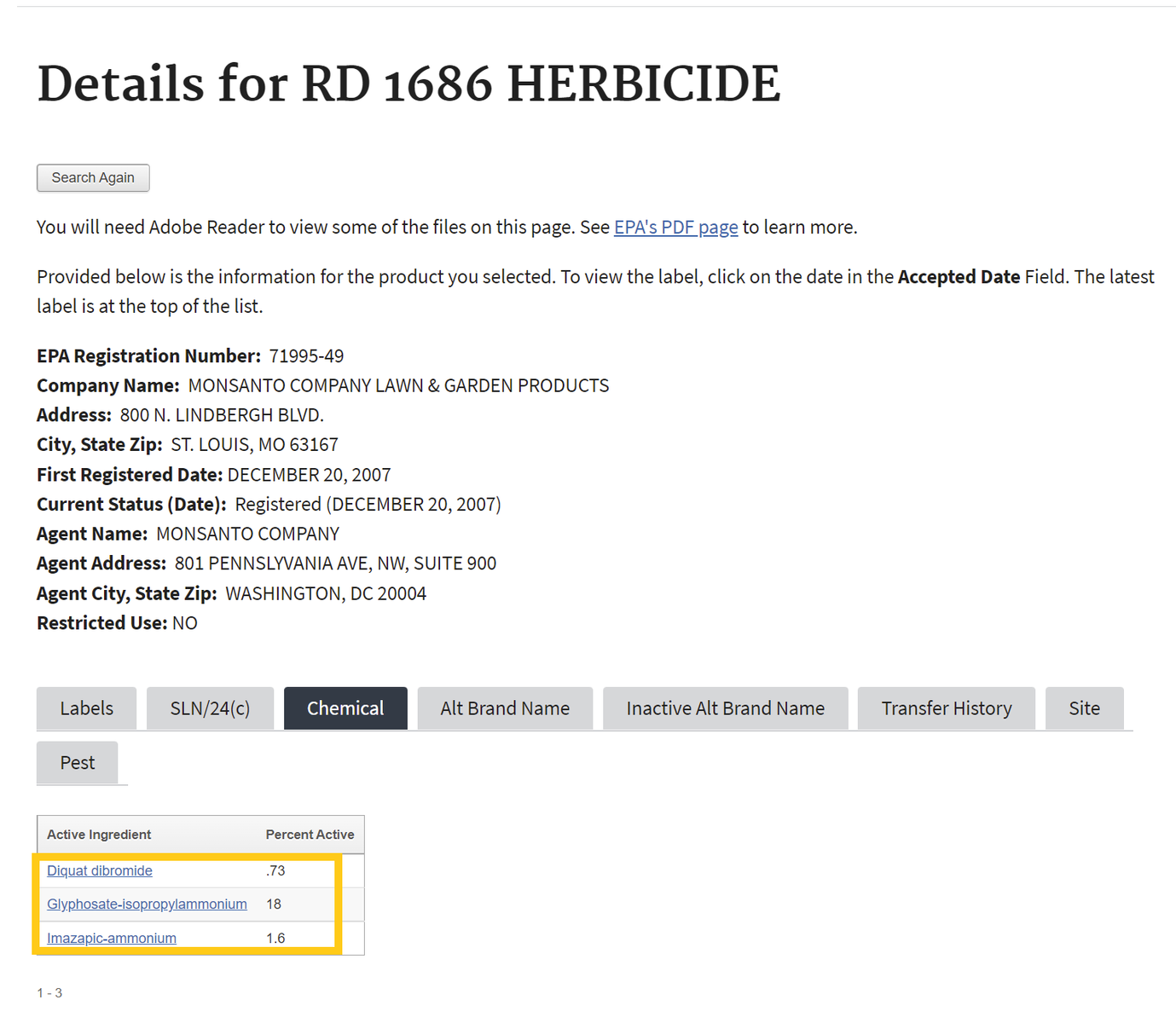
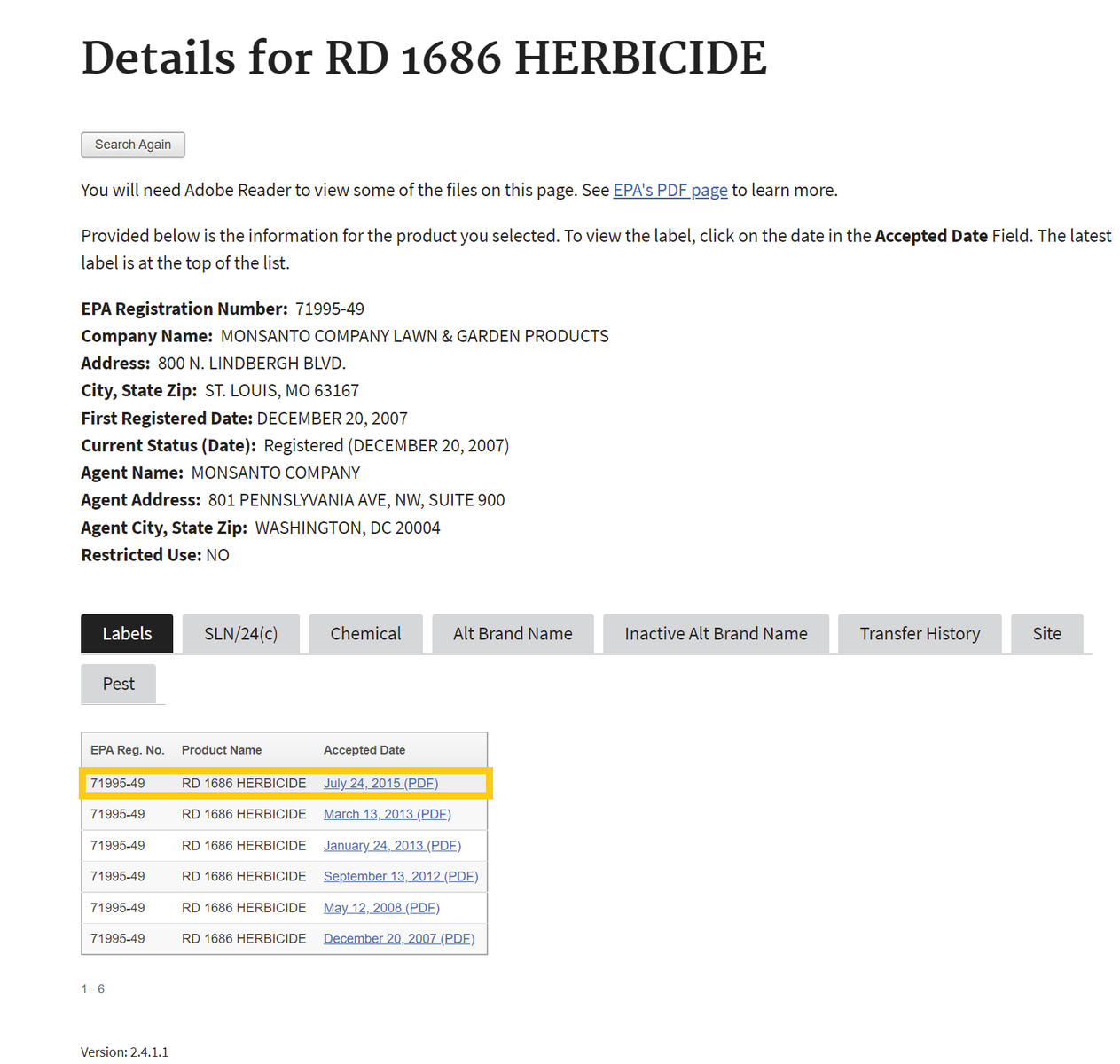
If one selects the chemical ingredients tab, skip to Step 4 . If not, proceed to step number 3 - To find the active ingredient(s) on the label, search for the page in the document containing the date of registration. Usually, the active ingredients section occurs within the first few pages of the label document.
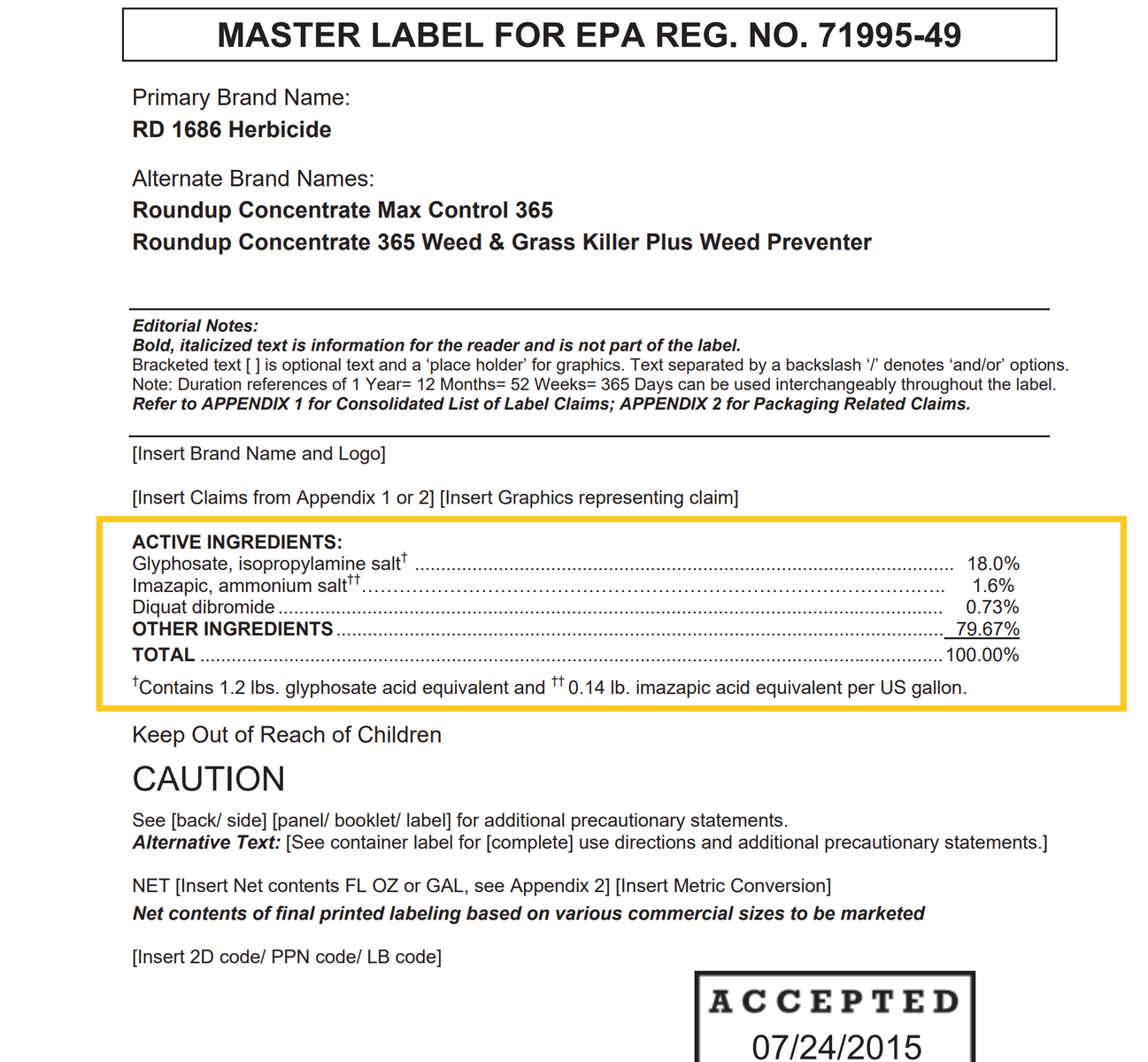
- Return to the Beyond Pesticides Gateway and search for the active ingredient name in the yellow box to the right or from the list below.
Oil of Lemon Eucalyptus
p-Menthane-3,8-diol or PMD — synthesized version of oil of lemon eucalyptus
General Information
- Fact Sheet: oillemoneucalyptus.pdf
- Product Names:
- Chemical Class: Biopesticide
- Uses: Insect repellent
- Beyond Pesticides rating: Least-toxic
Health and Environmental Effects
- Cancer: Not documented
- Endocrine Disruption: Not documented
- Reproductive Effects: Not documented
- Neurotoxicity: Not documented
- Kidney/Liver Damage: Not documented
- Sensitizer/ Irritant: Yes (8)
- Birth/Developmental: Not documented
- Detected in Groundwater: Not documented
- Potential Leacher: Not documented
- Toxic to Birds: Not documented
- Toxic to Fish/Aquatic Organisms: Not documented
- Toxic to Bees: Not documented
Residential Uses as Found in the ManageSafe™ Database
Additional Information
- Regulatory Status:
- EPA Reregistration Eligibility Decision (RED) (5/2000)
- EPA Factsheet (4/2000)
- Supporting information:
- How to Repel Mosquitoes Safely (Beyond Pesticides)
- CDC Insect Repellent Factsheet (Centers for Disease Control and Prevention, CDC)
- PAN Pesticides Database: (Pesticide Action Network)
- Studies:
- PMD, a Registered Botanical Mosquito Repellent with Deet-Like Efficacy. Scott P. Carroll and Jenella Loye. 2006. Journal of the American Mosquito Control Association.
- Laboratory Evaluation of Mosquito Repellents Against Aedes albopictus, Culex nigripalpus, andOchlerotatus triseriatus (Diptera: Culicidae). Barnard, DR and Xue, R. 2004. J of Medical Entomology
- Laboratory Evaluation of a Eucalyptus-based Repellent against Four Biting Arthropods. Trigg and Hill. 1996. Phytotherapy Research.








.png)
